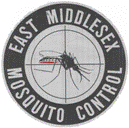West Nile Virus Found in Medford Mosquitoes
 – Allison Goldsberry
– Allison Goldsberry
A batch of Medford mosquitoes tested positive for West Nile Virus (WNV), according to the state department of public health and the Medford Board of Health.
“Though Medford has a vigorous prevention program through the East Middlesex Mosquito Control Program, it is important that each citizen use prevention and caution, and this news should serve as a warning that mosquitoes pose a health threat between now and early October. Although the chances of acquiring mosquito borne diseases such as WNV or EEE are remote, residents should be aware that these mosquito-borne viruses could cause fever, meningitis or encephalitis. Early symptoms of these diseases include fever, headache, stiff neck and muscle weakness,” said a statement from Karen Rose, Medford’s Director of Public Health.
According to the Medford Board of Health, mosquitoes acquire WNV or Eastern Equine Encephalitis (EEE) after biting an infected bird. Those mosquitoes can then transmit that virus to a person, horse or to another bird. Culex mosquitoes that develop in water holding containers are the primary vectors of WNV, while the mosquitoes that transmit EEE usually originate in wetlands.
To help combat the disease-carrying mosquitoes, Medford joined the East Middlesex Mosquito Control Project in 2003 after four people contracted West Nile Virus in 2002 and 2003. None of the cases were fatal though there was one fatal case in Malden.
To prevent mosquito bites, people are encouraged to take the usual precautions, including getting rid of standing water, using sprays with DEET, Picaridin or Oil of Lemon Eucalyptus, and wearing long-sleeves and pants during periods of peak mosquito activity.
Mosquitoes are most active in damp, shady areas, during cloudy, humid days, and at dawn, dusk, and night hours.
For further information on WNV or EEE, log on to the Massachusetts Department of Public Health web site at www.mass.gov/dph/wnv or the US Centers for Disease Control and Prevention at www.cdc.gov/ncidod/dvbid. If residents have any questions about mosquitoes or how to control them, contact the East Middlesex Mosquito Control Project at 781-899-5730 or visit their website at www.town.sudbury.ma.us/services/health/emmcp.